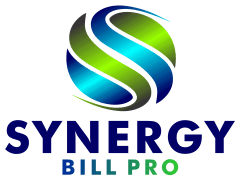Medical insurance verification is a foundational aspect of healthcare administration. Ensuring accuracy in this process is crucial for both healthcare providers and patients, as it directly impacts financial stability and access to care. Errors in verification can lead to claim denials, delayed treatment, and significant financial losses. This blog will delve into the essential procedures and strategies for healthcare providers to guarantee precision and adherence to regulations during the insurance verification process at Synergy Bill Pro, a leading provider of insurance verification in Delray Beach, FL.
The Impact of Accurate Verification on Healthcare Providers and Patients
Accurate insurance verification not only prevents claim denials and delays but also ensures that patients receive the coverage they are entitled to. When verification processes are meticulous, healthcare providers can optimize revenue cycles, reduce administrative burdens, and enhance patient satisfaction. The ripple effect of accurate verification extends to improved patient trust and loyalty, as well as streamlined operations within healthcare facilities.
Understanding Medical Insurance Verification
Medical insurance verification involves confirming a patient’s insurance coverage, including the specifics of their plan, benefits, and eligibility. By ensuring that the patient’s insurance will pay for the services rendered, this process lowers the risk of non-payment.
The verification process includes several critical steps: collecting patient information, verifying insurance coverage, understanding the specifics of the insurance plan, checking for pre-authorization requirements, and documenting the verification for compliance purposes. Each step is vital to ensuring comprehensive and accurate verification.
Healthcare providers often face challenges such as dealing with multiple insurance carriers, navigating complex insurance plans, and managing discrepancies in patient information. These challenges can lead to errors and inefficiencies if not addressed properly.
Establishing a Robust Verification Process
A robust verification protocol involves a systematic approach to gathering and verifying patient information. This includes double-checking patient details, confirming insurance coverage and benefits, and ensuring all necessary pre-authorizations are obtained before services are rendered.
Technology plays a significant role in enhancing the efficiency of the verification process. Utilizing electronic health records (EHR) systems and automated verification tools can streamline workflows, reduce errors, and speed up the verification process. These technologies also facilitate real-time updates and communication with insurance companies.
Continuous training and development for staff involved in insurance verification is essential. This includes educating them on the latest insurance regulations, verification techniques, and the use of technology tools. Well-trained staff are more likely to perform accurate verifications and adapt to changes in the healthcare landscape.
Ensuring Compliance with Regulations
Healthcare providers must navigate a complex landscape of federal and state insurance regulations. Staying updated with these regulations and ensuring compliance is crucial to avoiding legal repercussions and ensuring smooth operations.
HIPAA compliance is a critical aspect of medical insurance verification. Ensuring that patient information is handled securely and confidentially is not only a legal requirement but also a fundamental component of patient trust and care quality.
To maintain regulatory compliance, healthcare providers should implement regular audits, develop comprehensive policies and procedures, and provide ongoing training for staff. Documentation of the verification process is also essential for demonstrating compliance during audits and inspections.
Best Practices for Accurate Verification
Accurate verification starts with thorough information gathering. This includes collecting complete and accurate patient details, verifying personal identification, and confirming insurance information directly with the insurance provider.
Maintaining clear and effective communication with insurance companies is vital. This involves regular follow-ups, confirming coverage details, and addressing any discrepancies promptly to avoid delays in claim processing.
Regular audits and quality assurance checks help identify and correct errors in the verification process. These practices ensure continuous improvement and adherence to best practices, ultimately leading to more accurate verification.
Managing Common Verification Issues
Denied claims and coverage discrepancies are common issues that can be mitigated through proactive verification. Healthcare providers should develop protocols for addressing these issues promptly, including re-verifying information and appealing denied claims when necessary.
Understanding and managing pre-authorization and referral requirements are critical components of the verification process. Failure to obtain necessary authorizations can lead to claim denials and patient dissatisfaction.
Continuous improvement in the verification process involves regularly reviewing and updating procedures, incorporating feedback from staff and patients, and leveraging technology to minimize errors.
The Role of Technology in Verification
EHR systems facilitate the efficient management of patient information and insurance details. By integrating EHR systems into the verification process, healthcare providers can streamline workflows, reduce paperwork, and improve accuracy.
Staying abreast of technological advancements in the healthcare industry is essential. Healthcare providers should continuously evaluate and adopt new technologies that can improve the verification process and reduce administrative burdens.
Effective medical insurance verification is critical for ensuring accurate billing, preventing claim denials, and enhancing patient satisfaction. By implementing best practices, leveraging technology, and ensuring compliance with regulations, healthcare providers can optimize their verification processes.
For expert assistance with insurance verification. Contact Synergy Bill Pro today. Contact us to get started!





